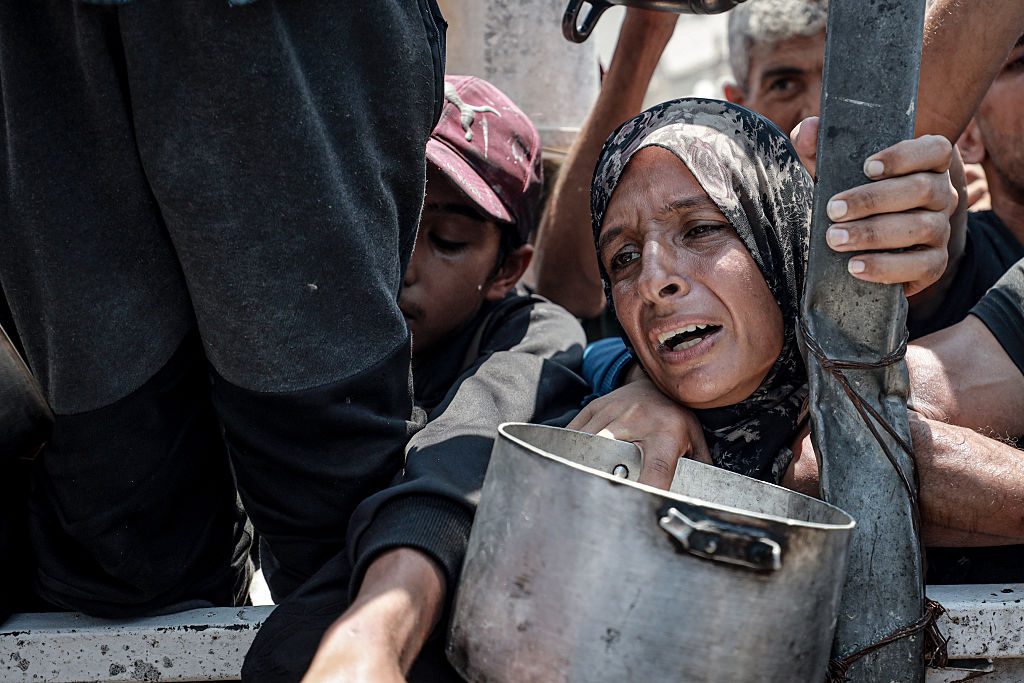At least 113 people — including 81 children — have died from starvation or malnutrition in Gaza since early March, humanitarian agencies report, as food aid remains severely restricted under a near-total Israeli blockade.
Israel cut off humanitarian assistance in early March and has since maintained tight control over food, fuel, and medical supplies entering Gaza. The destruction of bakeries, food warehouses, and infrastructure has pushed more than a quarter of Gaza’s population to the brink of famine. Acute malnutrition and starvation are widespread, and UN agencies warn the enclave is entering a catastrophic phase.
Despite Israeli and U.S. claims that Hamas has been diverting and stealing aid, a confidential USAID analysis released in late June studied 156 reported loss or theft incidents and found no evidence that Hamas benefited systematically from U.S.-funded supplies. Instead, at least 44 cases involved actions by Israeli forces, directly or indirectly, as aid was disrupted near military checkpoints or strikes. A State Department spokesperson disputed those findings, citing video evidence of Hamas looting aid that has not been publicly shown.
Aid workers and journalists in Gaza are themselves going hungry, with dozens collapsing or dying after hours spent waiting in lines at Gaza Humanitarian Foundation (GHF) distribution centers, an armed private aid system backed by the Trump administration and Israeli government. Over 1,000 Palestinians have died in recent months trying to access food near these sites.
President Trump has endorsed the GHF model and blamed Hamas for obstructing ceasefire talks, while withdrawing U.S. negotiators and resisting pressure to reopen crossings or restore UN-led aid channels. Critics argue his policy is complicit in a strategy of starvation and amounts to using hunger as leverage in broader geopolitical aims.
Global pressure is intensifying. Leaders from the U.K., France, and Germany have demanded an immediate ceasefire and the lifting of Israel’s blockade. UN officials warn that without urgent reversal, Gaza faces one of the worst famines in modern history — one driven not by conflict alone, but by policy decisions.


